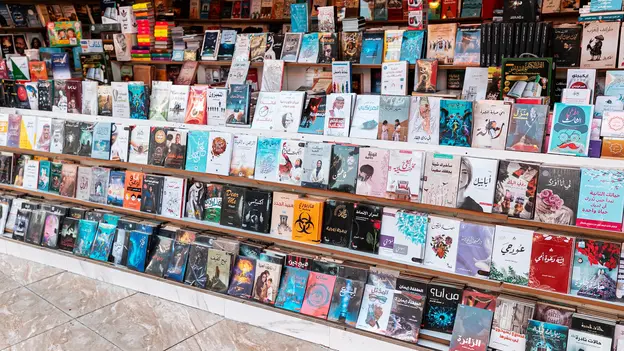Tandem Project
Readers in a Globalized World
Conference
This project focuses on the reader rather than the text. The reader, who is actively constructing texts rather than passively consuming them, is considered an essential key to understand literature in its relationship with culture and society. However, literary studies have often shied away from approaching readers and mapping the reception of literary texts. In regard to modern Arabic literature, one challenge was the seeming lack of sources, the other the perceived absence of culture-sensitive theories and methods. With the rise of social media and its participatory reading culture, scholars from different disciplines have turned to the digitalized literary sphere to study how readers experience literature. While Arabic studies, with few exceptions, have yet to realise the full potential of social media for reader research, there are new approaches in various fields to explore the reader, reading habits, and the reception of modern Arabic literature.
Who reads contemporary Arabic literature, how, and why?
The conference brings together scholars from diverse fields such as literary studies, comparative literature, cultural studies, media and communication studies, translation studies, anthropology, ethnography, social sciences, history and digital humanities. They are invited to exchange on interdisciplinary approaches to texts and readers, communities and practices, media and institutions, translations and adaptations, distribution and receptions. The overall aim is to discover the reader of modern Arabic literature.
Call for Papers: Reception of modern Arabic literature from the 19th century to the 21st century
The conference invites contributions on the reception of modern Arabic literature from the 19th century to the 21st century. This may include research on readers of marginalized or emerging literary genres such as the essay or the graphic novel as well as literary texts written in languages other than Arabic but related to the literature of the Arab world such as French and English.
Suggested topics include, but are not limited to:
- reading communities and reading practices (e.g., book clubs, social networks)
- influential individual readers and their readings (e.g., literary critics, scholars, authors)
- the media and especially social media as a platform for readers (e.g., journals, YouTube, Instagram)
- institutions and their impact on literary reading (e.g., schools, universities, reading indicatives)
- reception of particular literary texts, genres and authors in the Arab world and beyond
- politics and economies of translating modern Arabic literature and their forms of reception
- the literary field and the making of readership (e.g., bestsellers, literary prizes)
- fan culture and participatory reading and reading events (e.g., book fairs, fan videos)
- empirical research on readers
- digital and automated approaches to readership (e.g., sentiment analysis, network analysis)
- reading surveys and institutional reader research
- Disciplines Involved
- Literary Studies, Comparative Literature, Cultural Studies, Media and Communication Studies, Translation Studies, Anthropology, Ethnography, Social Sciences, History, Digital Humanities
- Date
- 5 - 7 October 2022
- Venue
- Philipps-Universität Marburg, Germany
- Cooperation Partner
- Philipps-Universität Marburg, Germany
- Project Title
- Who Reads Modern Arabic Literature, How and Why? Interdisciplinary Approaches to Readers, Media, Translation and Reception in a Globalized World
- Year
- 2022
- Funding Scheme
- Tandem Project
- Countries Involved
- Germany, Kuwait


